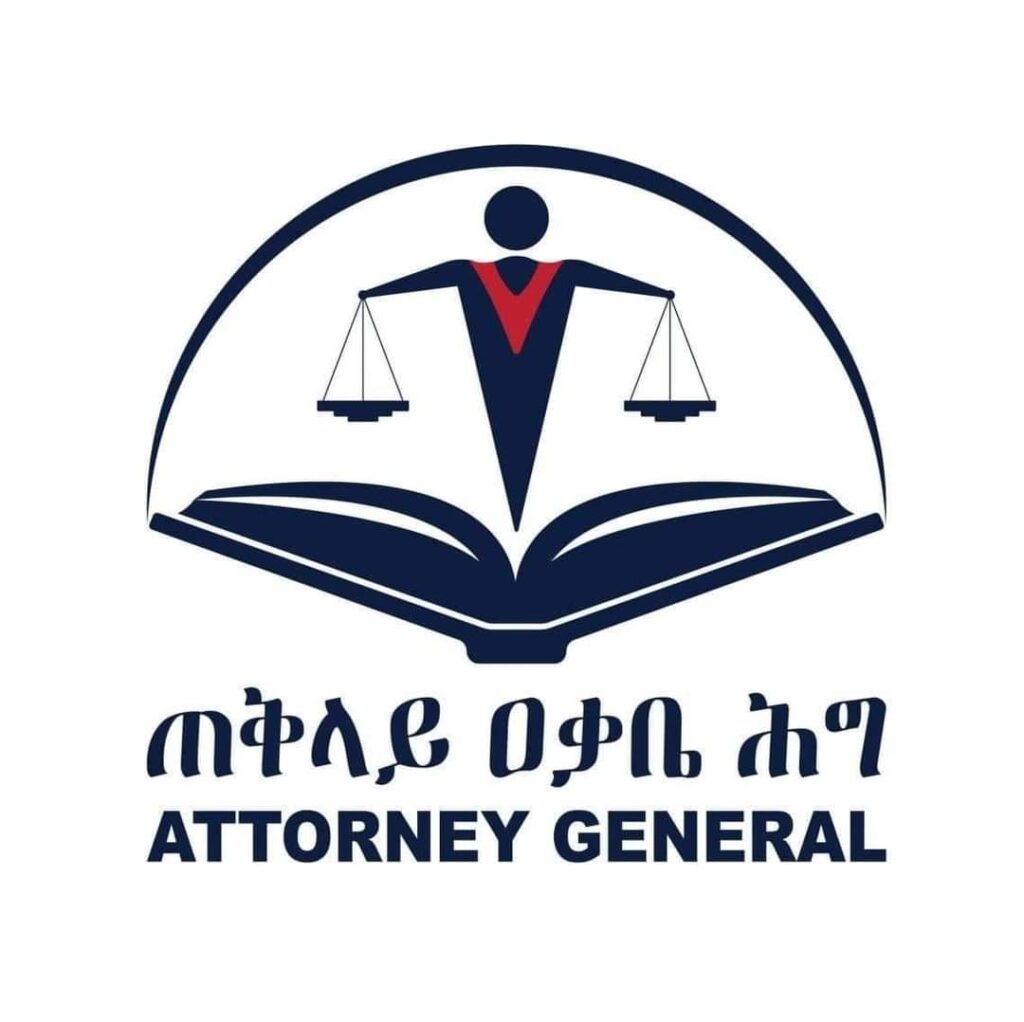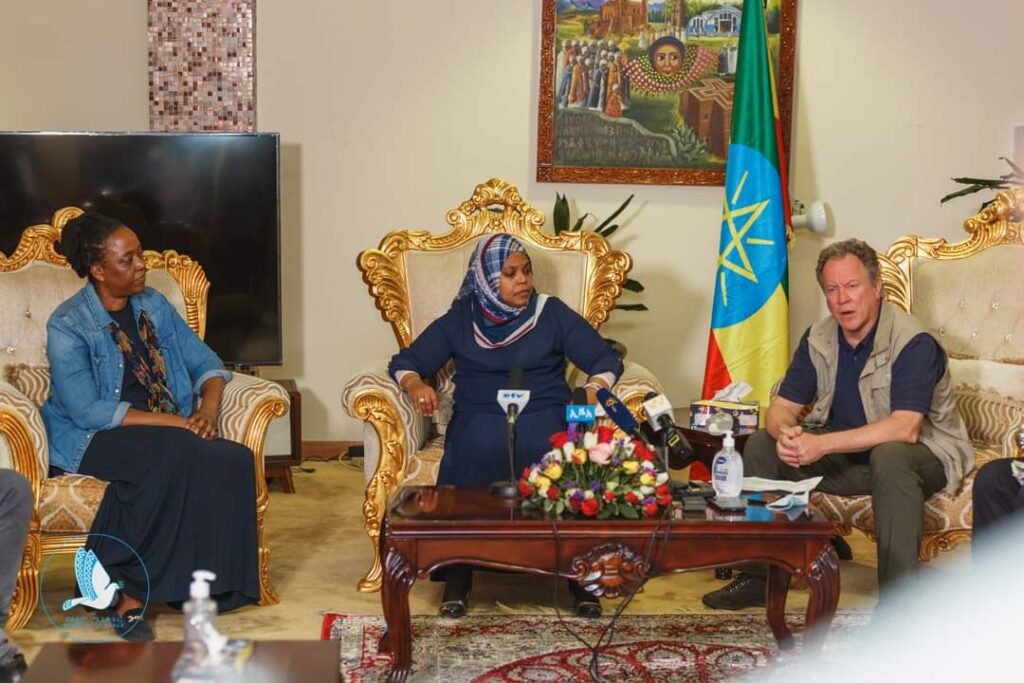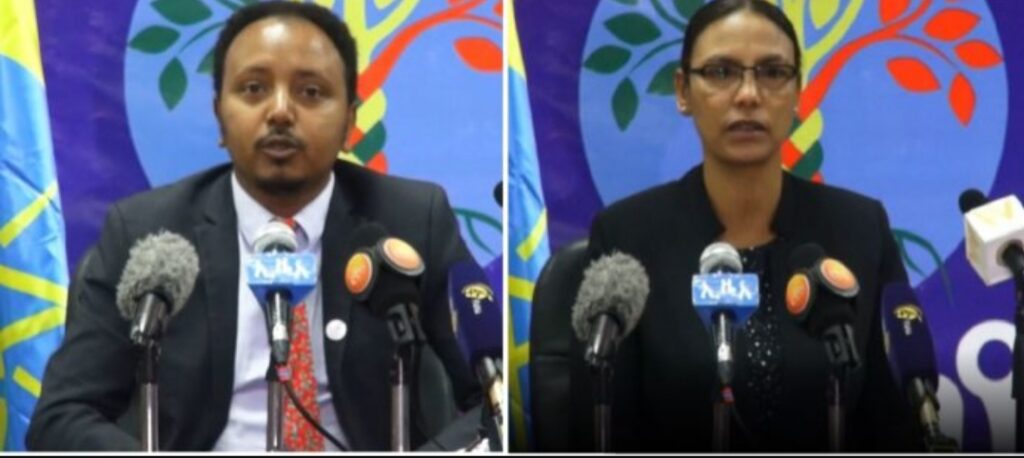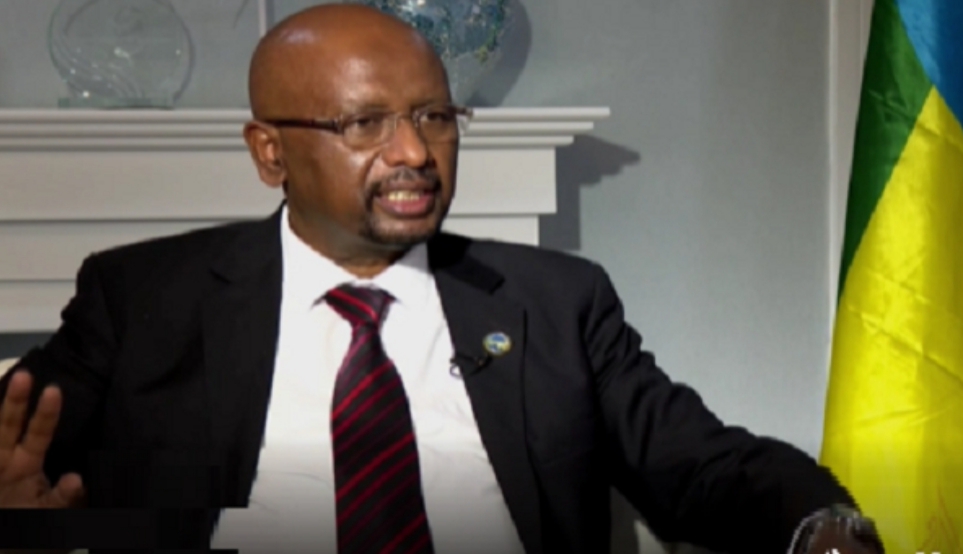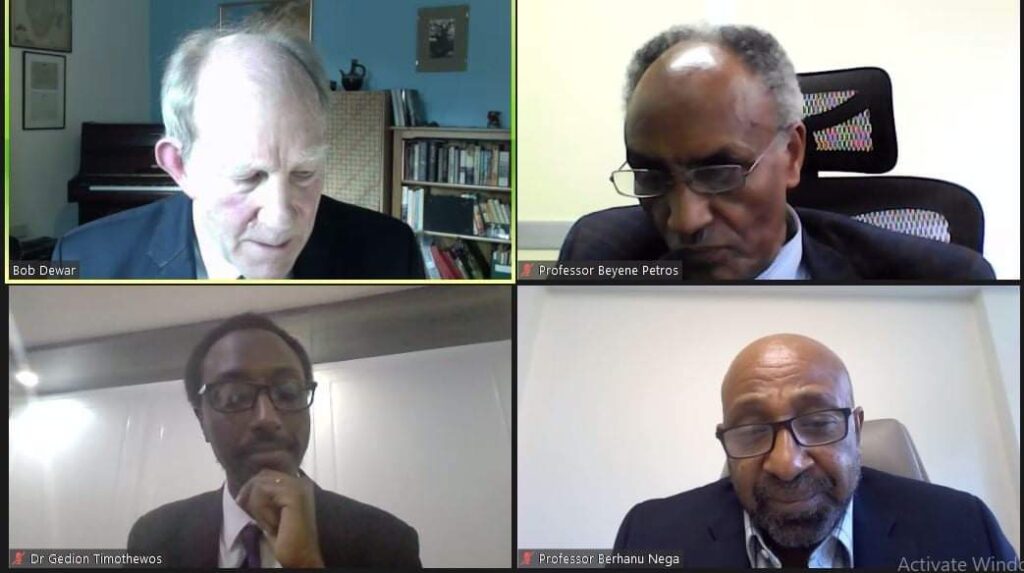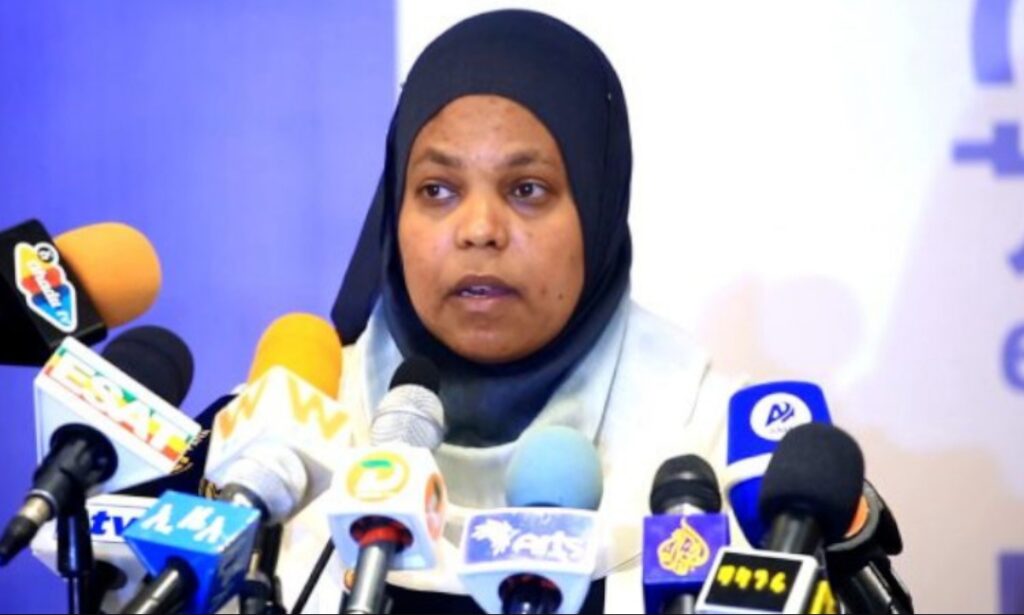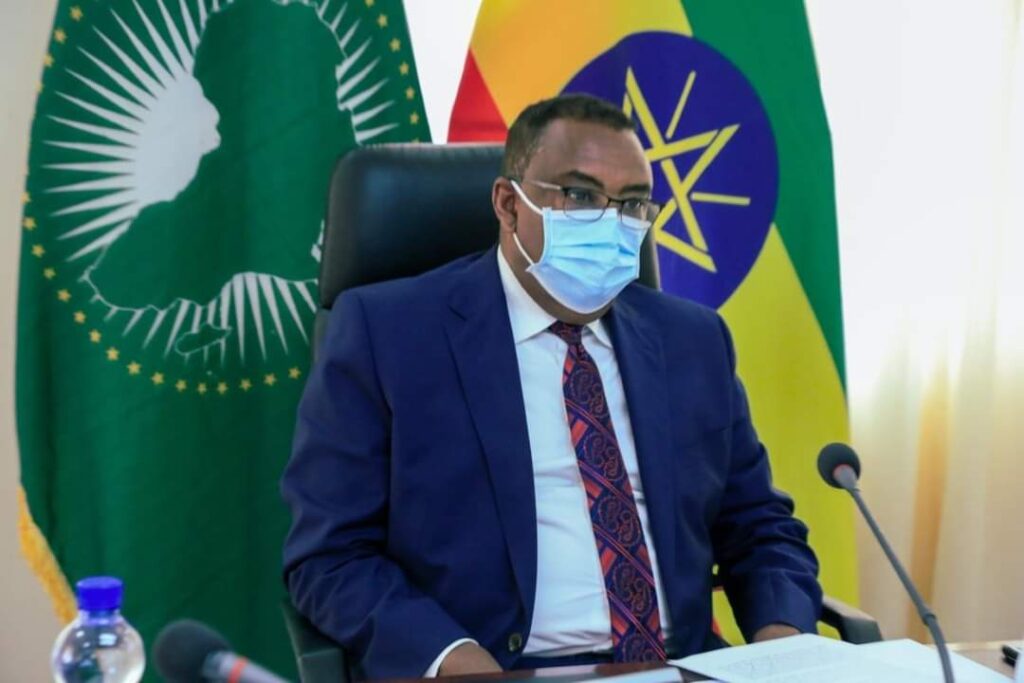“The TPLF planned and thoroughly prepared for three months to control the central government before it starts this war. ¹Three months later, on November 03/2020, they declared war on the central government. Because of their multidisciplinary preparation, they entered this war with the idea that there is something that can explode everywhere at once. According to the documentary evidence we gathered from the TPLF cabinet meeting, 17 of the 23 cabinet members were present. Once the preparation was over, they decided that they were ready for war and that they would start fighting at any time. This is a decision made at a meeting ten days before the day they lodged the war. They made sure that food and fuel that can last for three months was prepared. Therefore, the TPLF as a whole, as well as the executive members of the organization, the cabinet, the central committee and their leaders in the government offices, have assessed that they are now in a position to properly attack the federal security forces and seize power.” This is an excerpt from a report by the Taskforce which was set up to investigate the crimes committed by the TPLF. The task force is accountable to the Attorney General. The team is comprised of federal prosecutors, federal police investigators, military crimes investigators, and war crimes investigators have been formed. Please find the detailed report below.
Investigative Report and Findings on Crimes Committed by the TPLF Group on November 03, 2020 and its Pre- -war preparations prior to the commission of the Crimes on the Defense Army and civilians.
=============
#Introduction
The TPLF has ruled Ethiopia for 27 years. The group had key positions of authority and besides in the past two years, it was in control of the Tigray region. During this time many crimes were committed by the group.
Our investigation aims at achieving three goals. The first one, which is our priority, is to investigate the crimes committed by the TPLF on our defense force. In the process, we have set up a task force to investigate crimes committed by the TPLF in the northern part of the country, But eventually, this task force can investigate the crimes committed by this group during its 27 years in power, making the perpetrators criminally liable for their actions. As a federal police and attorney general, we have a quasi-judicial power. Therefore, if there is lack of sufficient evidence, a decision will be made not to institute criminal charge on the suspects. But for cases on which sufficient evidence is provided, When a charge is instituted against them, all procedural rights enumerated under International instruments including the ICCPR and the FDRE constitution will be upheld and the court will ultimately decide on the matter.
The second goal of the investigation is to return a plundered wealth to the country. Since no one should benefit from his own criminal act, a focus will be given to confiscate the proceeds of the crime and an investigation to this effect is being conducted.
The third goal is preserving this history by documenting atrocities committed by this group. This will benefit the country in two ways. Firstly, it will be taken as a big lesson which will help in making sure that it won’t be committed again. And secondly, it will be used as a means to reconciliation.
A task force has been set up to investigate the crimes committed by the TPLF. The task force is accountable to the Attorney General. The team is comprised of federal prosecutors, federal police investigators, military crimes investigators, and war crimes investigators have been formed.
1. #Background to the attack
Initially, in 2010 E.C., the Tigray Regional Security Bureau established a force called the Zefer Mewferi Forces, which was led by a retired member of the Defense Forces. The unit gradually became independent and ordered all security forces to be deployed and trained.
Prior to the 2010 E.C. political change in Ethiopia, the Tigray Regional State trained about 450,000 Special police Forces annually. Since the change, they have been training 5,000 special forces per year so that they resemble the defense force.
The militia in the region is divided into three; level one, level two and level three. Level one and level two are designed to participate on the war. Thus, our investigative findings show that the militia has mobilized more than 170,000 troops and lodged this war.
Eventually, the Tigray Regional State established a military center called the Tigray Central Command or Defense Council and established eight fronts with eight commands; The Confederation has established 23 regiments. This arrangement is for the Special Forces only. It does not contain militias. As per the documentary evidences gathered by the investigation team, the Central Military Command is supposed to be independent and to carry out what’s normally the work of the Ministry of Defense. A draft regulation of the Central Military Command has been prepared to guide it. A detailed structure has been prepared for the military command, and salaries and benefits have been assessed. A document regarding the payment of salaries has also been obtained under the Central Military Command. The organization consists of the Chief of Staff, the Commander-in-Chief of the Central Military Command, the Deputy Commander-in-Chief, and the Commanders of the Task Force, the Brigades, the Battalions, the Armed Forces, the Ganta, the Team and the Commander-in-Chief.
In addition to training manpower, and retirees, they pay additional salaries to those recruited Tigrayans in the armed forces who were still in the army at the time of the attack to carry out their agenda, and to each officer and member of the Tigrayan Defense Forces who they think will implement this agenda.
In the run-up to the North Command’s plan, various Tigrayan military officers were spying on their own organizations within the army. During our investigation, we also found out that the TPLF EFFORT companies, Sur Construction, Mesfin Industrial Engineering and Mesobo, each of the Effort companies, played their respective roles in the excavation. This is in stark contrast to military preparations.
On the other hand, there is sufficient evidence that this group has been sponsoring national conflicts over the past two years by aiming that it is important to not only do its own preparations, but also weaken the federal government. There were groups which have been employed by the TPLF, in order to commit crimes everywhere in the country. They prepared budget proposals to this effect and were given subsidies and equipment’s from Tigray State by explaining the purpose of the budget to the TPLF as if it was legal. This is not just an informal backing. Thousands of people have been killed in ethnic clashes in Benishangul Gumuz, Oromia and other regions of Ethiopia by these groups which were backed by the TPLF. Our investigation clearly shows that there was support from the TPLF, for the parties to the conflict in the country in the past two years.
As soon as the military command was established, it continued to prepare for war by accepting the forces already undergoing training in the security forces and preparing them for war. The command consisted of an 8-member task force and a 540-member mechanized unit.
A new sector, deploying security sector, has been prepared in two rounds with a total of Birr 446,707,945.35 on 22/12/2012 E.C., Birr 109,041,453.70 on 10/02/2013 E.C. from the Regional Police Commission and Birr 10,320,000 on 29/01/2013 E.C. A total of 566,069,399.05 Birr was transferred from the reserve budget.
The EFFORT companies, established by the TPLF, have been particularly involved in fundraising. Mesobo and Trans Ethiopia have been involved in transporting military equipment and food. Trans Ethiopia has assisted the regional government in transporting fuel from the federal government to deposit it to commercial and underground storage facilities. It was instrumental in transporting weapons stolen from the Northern Command. Mesfin Industrial Engineering donated vehicles and machinery. The donated property was used to transport troops and equipments. Sur Construction has been digging fortifications in the past. During the war, the company’s machinists were traveling with the group to dig forts and cut roads. When the group decided to shoot high-ranking officers, they set up a fort on a town named Tamben.
In the meantime, by giving 70 square meters of land to each senior officers and members of the Tigrean-speaking Defense Forces; they were trying to take advantage of the additional salary and use the members as a means to an end. The Tigray regional government has been exerting significant psychological pressure on non-Tigrigna-speaking senior officers and members of the armed forces by placing checkpoints in various parts of the region, inspecting troops operating in the area and seizing weapons if found.
Prior to the incident, Tigrigna-speaking senior members of the Defense Forces and retired officers were reported to have been secretly gathering alone, training regional militia members and Special Forces, digging fortifications in the area.
The special force and militas in the region were preparing to block the movement of weapons into the interior of the region and to obtain and loot the weapons as soon as possible.
2. The #initiation of war on November 03, 2020
On November 03/2020, a series of attacks were made against the National Defense stationed in Northern Tigray by the regional Special Forces and Militia by encircling the defense camps, and threatening that if the soldiers do not give their weapons, blood will be shed.
Some Tigrigna-speaking brigade commanders and brigade leaders and members who coordinated and led the attack on the brigades and battalions of the brigades to which who have so far testified that the incident took place at the same or similar time.
The Defense Forces were defending themselves during the day-to-day fighting to prevent the invasion and disarmament of the camp. But there were Tigrean-speaking leaders and members who sided with the attackers.
Seventeen of the soldier hostages were killed in a collision with a Sino truck vehicle, and some of the campers were killed, dragged by a car, and beheaded by the TPLF group. From the places where we received the testimony that there was looting of small arms to heavy weapons and the personal belongings of the members were looted by some Tigrean-speaking defense officers and members of the defense forces who were attacking the defense with the looted weapons.
• Infrastructure Disruption,
Among many others Ethio Telecom and Ethio Electric Power were attacked. We have received testimonies from Ethio Telecom and all military units that the regional special forces and militias have encircled the camps in order to carry out the operation and the Ethio Telecom network was terminated by the order of the then Vice President of the region, Dr. Debre Tsion Gebremichael..
• Oil Robbery
The Ethiopian Petroleum Supply Company has a depot in the Kuha, Mekelle area. The depot was misappropriated by the vice president of the regional government, the regional trade bureau and the regional transport bureau, for military use, and the oil was distributed to them illegally in order to assist them in the war.
• Wheat Robbery
The Ethiopian National Disaster Risk and Preparedness Agency has stockpiled wheat in Mekelle. It is being investigated that the region’s disaster preparedness officials have looted the wheat and used it for food for their military.
• . Rocket strike
The Tigray military command used some of the missiles and rockets it stole after looting northern command weapons in Eritrea, Gondar and Bahir Dar.
The #parties involved in the attack
As per the evidences collected by the investigation team, those involved in this crime are:-
• Members of the Tigray Regional State Special Forces
• Members of the Tigray Regional Militia
• Some senior Tigrigna-speaking officers in the Defense Forces
• Some Tigrigna-speaking senior officers members of the Defense Forces that have been honorably discharged
• Some Tigrigna-speaking Addis Ababa police and federal police officers and former police officers
Confirmed criminal allegations against members of the regional cabinet
The TPLF planned and thoroughly prepared for three months to control the central government before it starts this war. Three months later, on November 03/2020, they declared war on the central government. Because of their multidisciplinary preparation, they entered this war with the idea that there is something that can explode everywhere at once.
According to the documentary evidence we gathered from the TPLF cabinet meeting, 17 of the 23 cabinet members were present. Once the preparation was over, they decided that they were ready for war and that they would start fighting at any time. This is a decision made at a meeting ten days before the day they lodged the war. They made sure that food and fuel that can last for three months was prepared. Therefore, the TPLF as a whole, as well as the executive members of the organization, the cabinet, the central committee and their leaders in the government offices, have assessed that they are now in a position to properly attack the federal security forces and seize power.
In another development, the TPLF set up their own communications network and blocked the network of the Defense force. So when they attack and start a war; the defense forces were unable to communicate to each other. On September 2020, Major General G / Medhin Fekadu (Wadi Necho) himself went to the scene and made adjustments to the radio. Therefore, the TPLF decided to lodge war since it plans to stop the communication of the Defense Forces, it has prepared its own army; has sponsored conflicts for more than two years in various places in the country, has a weapon that it has deployed. Therefore, all that remained was to declare war on the peoples of Ethiopia and the Federal government. Each government office in Tigray, even the regional Supreme Court, has donated to the war-torn government. The regional Supreme Court, specifically, sent vehicles to the war.
After the change in Ethiopia, the TPLF were spreading propaganda that the federal government was going to attack the people of Tigray, every cabinet leader and top TPLF officials and claimed that they must be protected. Each cabinet was planning how to do this.
The Tigray Central Command, an institution established on August 2020, as per the evidence we gathered, about 566 million birr has been invested for this institution and only 525 thousand birr has been found in its account.
During the course of our investigation, we gathered evidences after they surrounded the Defense force they declared that “We don’t want to kill you if you surrender your weapons, we want you to stand by us.” But when they saw that the Defense Forces were determined not to betray the country; they took action against the army. This is proved with clear evidence. Our investigation shows that in the North Command, the Federal Police and the Defense Forces were attacked by the TPLF in different places at the same time.
In our investigation, we have confirmed that the Federal Police and our Defense Forces have been attacked in about 100 locations. Not only were the leaders of the TPLF, but also the government institutions in Tigray region involved in this war. The Effort companies, Mesfin Industrial Engineering and Mesobo, were transporting weapons, troops, and police to the places of the war. Sur Construction, another EFFORT company, used to dig forts before and during the war, by digging forts and when cutting roads. It was this organization that dug a hole in the ground when they decided to shoot the senior members of our Defense Forces, who were being held captive by this group.
In general, this group has committed crimes to the extent that it covers a number of serious offenses under the FDRE Criminal Code. From our investigation, a number of grave criminal offences were committed by the TPLF. Among them, High Treason (in violation of Article 248 of the Criminal Code), Impairment of the Defense power of the State (in violation of Article 247 of the Criminal Code) are the main ones.
In general, our investigation has shown that many attempts have been made to overthrow the unity of the country, the unity of the federation and the state of Tigray. In the end, this group tried to impersonate the de’facto state by declaring a state of emergency, by establishing a defense council, by selling bonds, which are the powers of the federal government only, as enshrined in the constitution.
Following the November 2020 attack by the TPLF, the National Bank of Ethiopia (NBE) ordered banks not to operate without a network but the TPLF officials were ordering banks to withdraw their funds on the grounds that they were no longer a federal institution. Although there was a limit on the withdrawal of money per day by a person provided by the National Bank Directive, they made a withdrawal of up to 190 million birr per person.
Thus, crimes were committed that undermined the unity of the state and the federation. They have committed terrorist acts by inciting rocket attacks. Rocket attacks are not just military orders rather, the executive committee met to decide on the attack. The order to launch a rocket attack on Eritrea, Bahir Dar and Gondar, was a well-discussed terrorist act by the executive committee of the TPLF.
3. The #Maicadra massacre
The ethnic cleansing in Maikadra by the TPLF took place on November 10, 2020. As of October 14, 2013 E.C., a group of young Tigrinya speakers living in an area commonly known as Samri, were armed with knives, sticks, and ferns, were selected with the cover of maintaining order in the city. They were recruited in the name of peacekeepers; Here the young people were served food in the halls of different wards.
Since October 23, 2020, the activities of these young people have been on the rise. There are large number of Amharas, who were commonly known as the Salug, most of whom are day laborers in Maicadara that are ethnic Amharas . In the aftermath of the November 03 attack on the Defense Forces, the Tigrayans militants were conducting house-to-house searches on the grounds that the Amharas were crossing the network using Sudanese SIM cards to report to the Ethiopian Defense Forces. They took SIM cards for inspection. Our investigation revealed that while they were looking for IDs, they were identifying the whereabouts of the Amhara natives.
In particular, the mayor, the head of the security forces, and the city police chief were also involved in the distribution of these weapons to the Samri youth. Possession of these sharp weapons in that city before October 14 was a crime and was punishable. But, they used the cover to say that the militia and the Special Forces were going to the war and that there was no one to maintain peace and security.
These Samri group established by the TPLF, closed doors of the Amhara houses and claimed that Amharas are donkeys thus should be killed and annihilated. After they killed the ethnic Amharas, they took the bodies of the deceased out of the city by tractors in three directions. In the process, we received the testimony of 245 witnesses. We have identified 279 people involved in the crime in Maikadra town alone. What made it difficult was that most of the victims were day laborers, so it was difficult to identify each of them by their names. We have confirmed that 279 people have participated, but we have arrested very few i.e. 36 people. Others have fled to Sudan in the name of refugees; at the time, we were able to verify the whereabouts of those who had fled to Sudan. In Sudan refugee camps, many perpetrators of the Mayakadra massacres are found by claiming that they are refugees. It is confirmed by even other fellow passengers.
In total, we collected 180 survivors who received treatment and 76 who did not seek medical attention. During the investigation, we found out that ten women were raped. We have done a lot of research to determine the cause of death and the number of deaths, in addition to other areas where the attacks took place, with a plan to investigate this ethnic-based genocide.
During the process, the Ministry of Health recruited 14 trained doctors, six paramedics and three other professionals from St. Paul’s Hospital. A total of 23 experts were present for about a month and the mass graves were opened and an autopsy was performed. The process was videotaped as their bodies were opened and counted, and each body was placed in a dignified manner.
We have not received the doctors’ report in writing, so we refrain from specifying the exact number and cause of death at this stage. However, there is a discrepancy between the number of death claimed by the funeral directors and people in the area and the investigation team who has gone down to the ground is different. There are reasons for this. We opened the graves in the presence of people who provided information to the investigative team, as well as those who provided this information to the Human Rights Commission. 87 wells have been opened in Abune Aregawi Church. Six mass wells and 24 scattered farms were found in two mosques. It was immediately confirmed that two of the graves we had dug in the church had died naturally and had nothing to do with the massacres. Coincidentally, it is in the same line.
By revisiting the mass graves, we were able to find 99 % of the scientific findings and the cause of death by having the doctors involvement during the investigation. When the number is officially announced by the doctors, it is less than what was previously announced on the media. When we asked those who spoke in the media why they had said the number in that way, they claimed that the body smelled and were unable to count on properly.
In general, members of the militia, police in state uniforms, Tigray natives were involved on the Maikadra attack and 99 % of the victims of the Maikadra massacre were ethnic Amharas. The killings were mostly carried out with knives, sticks, machetes, and shovels, and we have medical evidence that some of those who were trying to escape were shot and killed by militia and special forces in uniform. Only men were killed. We are in the process of finalizing the investigation into Mykadra. Thirty six suspects were arrested.
Most of those involved in the crime are now fugitives in Sudan refugee camps. The atrocities committed against Maikadra are extremely inhumane, especially since it was committed with the use of knives and sticks. Dead bodies were found in every field.
We will continue our investigation to ensure that those who committed these atrocities will be properly prosecuted and held criminally accountable.
• Were #Eritrean troops involved in the war?
The TPLF itself has already started the war with the calculation of how the process should be internationalized, to claim that foreign countries have joined forces with the Ethiopian army. The people of Eritrea and Ethiopia are similar in appearance. The TPLF made the uniforms of Eritrean security forces at Almeda textile fabric. Regarding the satellite images that have been claimed to be image of Eritrean troops crossing the border; The government of Ethiopia has repeatedly stated that members of our defense forces fled to Eritrea and were organized to defend and attack on Eritrean soil. During its 27 years in power, the group has been active in placing its people in international organizations who are now distributing this disinformation.
